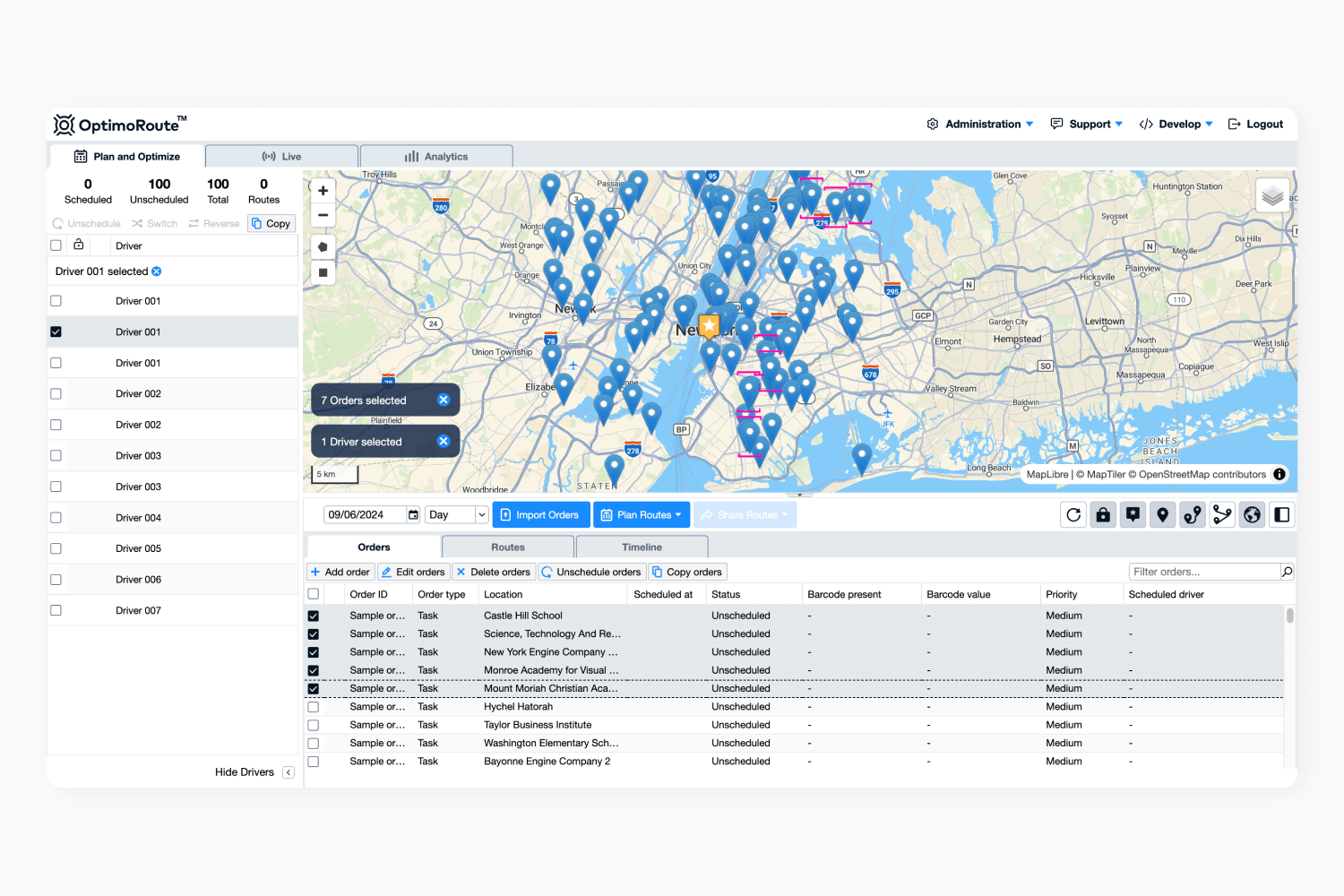Why Logistics Software for Small Business is a Game Changer

If you run a small business, you know how much hard work goes into the day-to-day operations. You probably wouldn’t say no to a helping hand that lessens the load and helps your whole business run more efficiently.
That’s why it’s worth exploring logistics software–because leveraging it effectively might be one of the most transformational decisions you ever make for your business.
We’ll be covering these topics below, so if you want to skip ahead, just click one of the headers:
What Is Logistics Software?
Logistics software is a swiss-army knife solution for businesses small and large that can take care of everything from route planning and optimization to automation of warehousing, shipping, transportation management, and much more.
If you run a business that is at all involved in the flow of goods between the point of origin and the customer, then you likely stand to gain higher levels of efficiency and profit from using logistics software in your operation.
What does a TMS do?
A transportation management system (TMS) falls under the umbrella of supply chain management but is specifically focused on transportation operations. Specifically, a TMS is a logistics platform that utilizes technology and is designed to help businesses manage every step involved in the process of physically moving goods from one location to another.
A TMS is meant to help businesses with the planning, execution, and optimization involved in the transportation process, including:
- Detailed planning: Automated planning that includes bulk imports of orders, driver workload balancing, and thorough load planning.
- Route optimizing: Helping to ensure each route is as efficient as possible in terms of output and resource usage while also accounting for factors like time window constraints or vehicle capabilities.
- Shipment tracking: Get live updates on each shipment along with accurate ETAs so that each customer can be kept in the loop at all times.
- Analytics: Improve your operation with detailed business intelligence and analytics based on historical data.
These are just a few of the many ways that software for logistics management like OptimoRoute can integrate into a small business operation and start creating value right away.
At the end of the day, an effective TMS helps transportation businesses gain increased sightlines into the granular day-to-day operations along with a comprehensive overview of the entire network.
What Is the Best Logistics Software?

The best logistics software for small business use or medium to large businesses is going to depend on your specific use case. For example, if you run a pharmacy that delivers medication to customers, you’ll likely want to make sure any software you use has proof of delivery options to ensure that there’s verification for each delivery that’s made.
On the other hand, if you run a food delivery business, you would likely want to make sure the dispatching software you choose allows you to rapidly plan deliveries, even hundreds of deliveries in mere minutes, like some food delivery businesses have been able to accomplish. That’s something that free shipping software for small business use probably won’t be able to accomplish.
These use cases vary greatly from other companies responsible for coordinating raw materials in a complex supply chain, for example, and each use case comes with its own set of requirements.
Regardless of your specific use case, these are some of the features you probably won’t want to compromise on no matter what software you choose:
- Automated planning: Importing orders or inputting stops into logistics software should be a fast and easy process. There also shouldn’t be restrictive limits on how many orders or stops you can plan. Ideally, you should be able to plan routes and schedules weeks in advance and customize them by the day or time they should be fulfilled.
- Route optimization: It’s not hard to find software that lets you plan a route, but optimizing those routes is a whole other ball game. For starters, look for software that enables you to optimize your routes based on time windows, duration of each job, and priority, and even lets you match your driver’s skills to each specific stop.
- Live tracking: You shouldn’t have to fly blind as a fleet manager. There’s no excuse for professional logistics software not to give you live data on where each driver is at any given time.
- Real time route modification: Business operators know that curve balls can come fast and hard, and your logistics scheduling software should allow you to make adjustments on the go to manage issues like vehicle breakdowns, sick drivers, last-minute route additions, and more.
Do a detailed analysis of the pain points in your individual business that you’re looking to solve, and that will help you choose from the top logistics software companies and settle on the right one for your business. If you want to learn more about logistics software programs and how they can help your business, you’ll want to check out this guide to route planning software.
Try OptimoRoute™ for Free
No installation or credit card required


